Little Jimmy
Dickens

-
Inducted1983
-
Born
December 19, 1920
-
Died
January 2, 2015
-
Birthplace
Bolt, West Virginia
Little Jimmy Dickens burst onto the national country music scene at the end of the 1940s with a string of humorous novelty songs. His small physical stature (four feet, eleven inches), big voice, and brassy style made him a longtime favorite with country fans.
Radio Beginnings
Born into a large West Virginia family, James Cecil Dickens got his early radio experience on local radio station WJLS in Beckley, with performers such as Mel Steele, Molly O’Day, and Johnnie Bailes. Through the 1940s, Dickens hosted his own radio programs in such spots as Fairmont, West Virginia; Indianapolis, Indiana; Cincinnati, Ohio; Topeka, Kansas; and Saginaw, Michigan.
Roy Acuff heard Dickens for the first time in 1947, in Cincinnati, and brought him to the attention of both Grand Ole Opry officials and Art Satherley at Columbia Records. After guest appearances on the Opry, Dickens signed with Columbia on September 16, 1948, joined the Opry shortly thereafter, and quickly achieved success in both realms. At the Opry, Hank Williams gave Dickens the nickname “Tater,” from Dickens’s 1949 hit “Take an Old Cold ’Tater (and Wait).”
Songs
00:00 / 00:00
00:00 / 00:00
00:00 / 00:00
Grand Ole Opry Stardom
Shortly after joining the Grand Ole Opry, Dickens took over Paul Howard’s band, which included crack guitarists Jabbo Arrington and Grady Martin (later, Jimmy “Spider” Wilson and Howard Rhoton), as well as bassist Bob Moore. Named the Country Boys, Dickens’s band became known for its topflight musicianship and for its pioneering twin-lead-guitar sound. Later, Dickens added young steel guitarist Buddy Emmons and guitarist Thumbs Carllile to the group.
“Jimmy wanted a specific tone from the guitars,” Rhoton recalled in 1997, for the liner notes of a Bear Family boxed set, Country Boy. “Jimmy was keenly aware of what was going on all the time. He liked the single-string, hot-licks type of backup, while he was singing the up-tempo stuff. He was the only artist back in those days that you could play that way with.”
Dickens and the Country Boys’ innovative, instantly identifiable sound drew plenty of radio listeners to the WSM-AM signal on Saturday nights. “Turn on all your radios, I know that you will wait / Hear Little Jimmy Dickens sing ‘Take an Old, Cold ‘Tater (and Wait),’” sang bluegrass king Jimmy Martin in “Grand Ole Opry Song,” a 1956 record that name-checks a total of twenty-two Opry performers, including Bill Monroe, Minnie Pearl, and Ernest Tubb.
Dickens not only influenced country music’s sound, he also had an impact on its fashion sense. In 1949, he became the first person to wear a suit designed by Los Angeles–based tailor Nudie Cohn on the Grand Ole Opry. In the early 1950s, Cohn adorned some Dickens suits with rhinestones, and Dickens became the first Opry star to glitter.
Dickens left the Grand Ole Opry in 1957, to tour with the Philip Morris Country Music Show, but returned in 1975.
“Jimmy Dickens is, without a doubt,” wrote Grand Ole Opry announcer and WSM on-air personality Eddie Stubbs, “one of the greatest entertainers, showmen, masters of ceremonies, goodwill ambassadors, troupers, singers of novelty tunes, and interpreters of country ballads that the country music industry has ever known.”
Rockabilly Numbers, Novelty Songs, and Romantic Ballads
In the late 1950s, Dickens recorded some rockabilly songs, including “Salty Boogie,” “Blackeyed Joe’s,” and “(I Got) a Hole in My Pocket,” the latter later a hit for Ricky Van Shelton. Other well-known Dickens novelty numbers include “Hillbilly Fever,” “Bessie the Heifer,” “Hot Diggity Dog,” and “Cold Feet.” He also performed romantic ballads, such as “I’ve Just Got to See You Once More” and “My Heart’s Bouquet,” but his novelty hits overshadowed them.
Following his #9 hit with Boudleaux and Felice Bryant’s “Out Behind the Barn” in 1954, Dickens did not place another song on the country chart until “The Violet and a Rose,” in 1962. His biggest hit came in 1965: a new novelty song, “May the Bird of Paradise Fly Up Your Nose,” which peaked at #1 on the country chart and went to #15 on the pop chart.
Thereafter, Dickens regularly placed singles for Columbia on the charts until 1972. He moved to Decca Records in 1967, then to United Artists in 1971. Of his later songs, 1967’s “Country Music Lover” had the highest chart ranking, but along with his novelty classics, the sentimental recitation “Raggedy Ann (You’ve Been Quite a Doll)” retained the longest popularity with his fans.
Videos
“Talking to the Wall”
The Porter Wagoner Show, 1961
“May the Bird of Paradise Fly Up Your Nose”
The Jimmy Dean Show, 1965
Photos
-
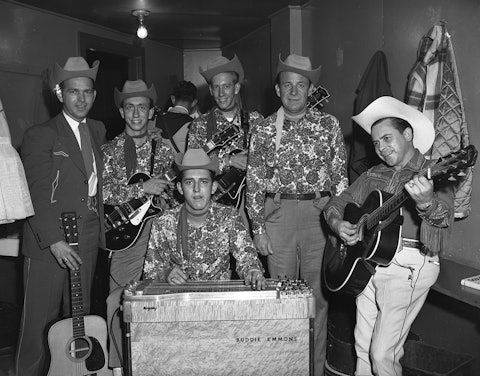
Little Jimmy Dickens and the Country Boys. From left: Johnny Johnson, Howard Rhoton, Johnny Sibert (obscured), Buddy Emmons, Jimmy “Spider” Wilson, Joel Price, and Dickens.
-
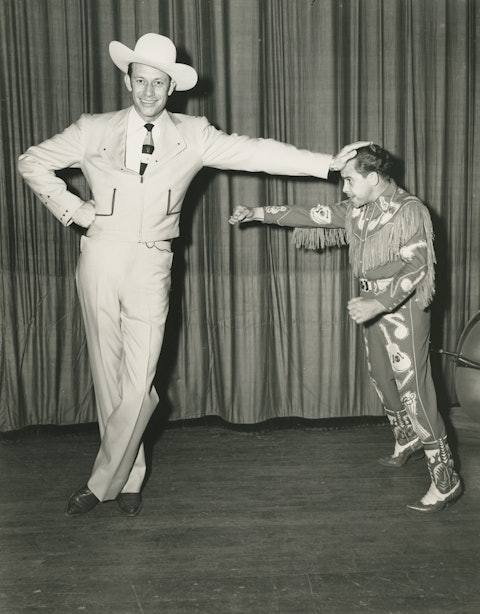
Little Jimmy Dickens and Hawkshaw Hawkins, 1955.
-
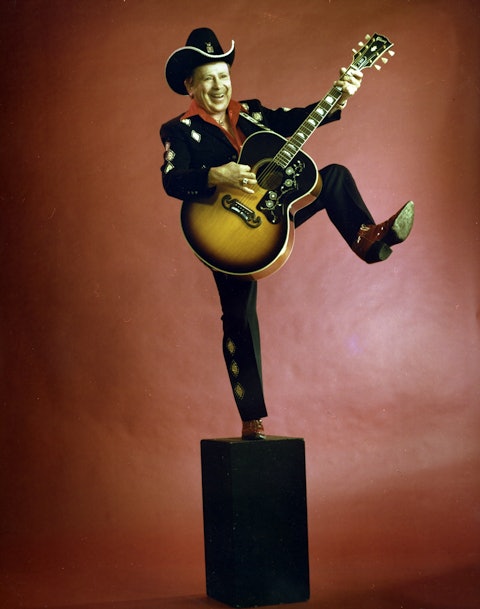
Little Jimmy Dickens, 1987. Photo by Walden S. Fabry Studios.
-
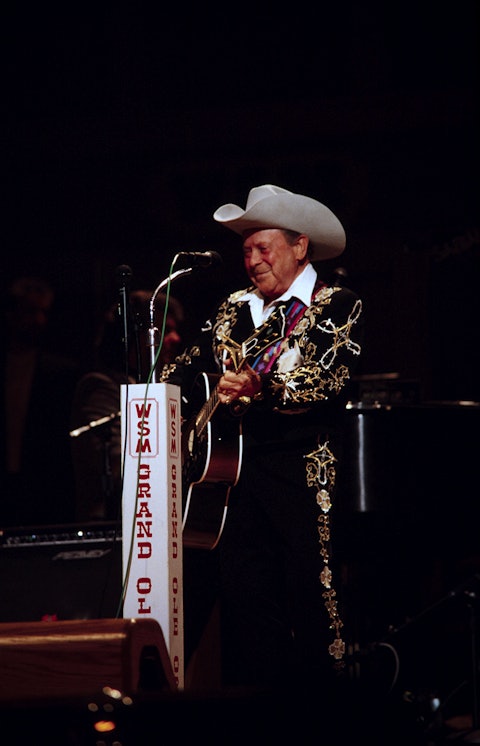
Little Jimmy Dickens, 1999. Photo by Raeanne Rubenstein.
-
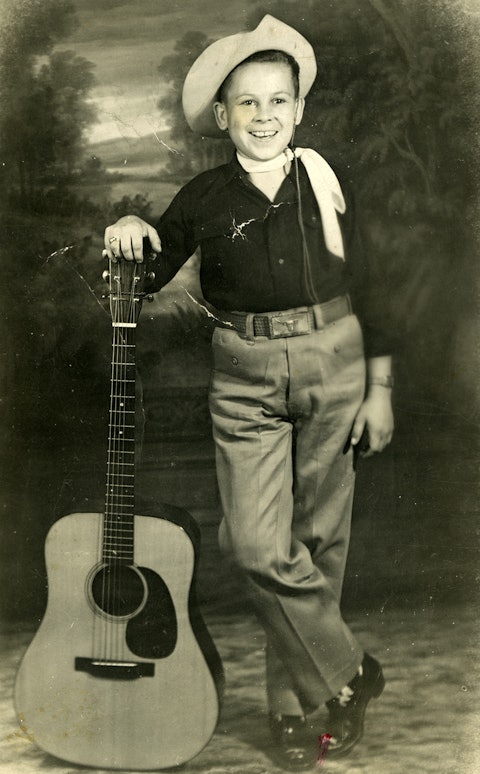
Little Jimmy Dickens as a child, 1920s.
-
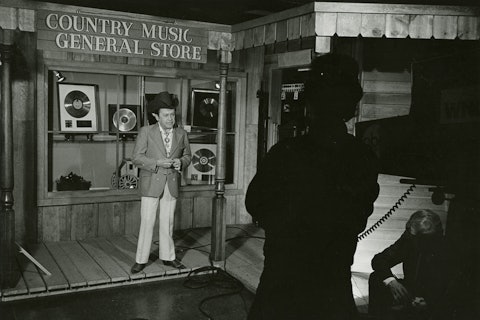
Little Jimmy Dickens, 1970s.
-
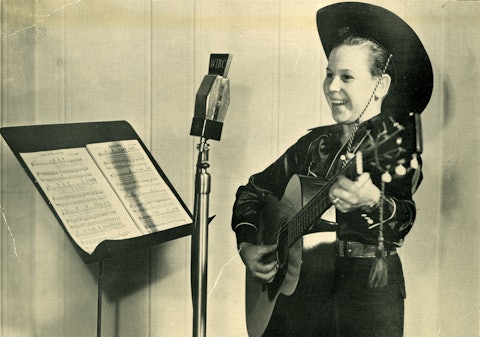
Little Jimmy Dickens, 1940s.
-
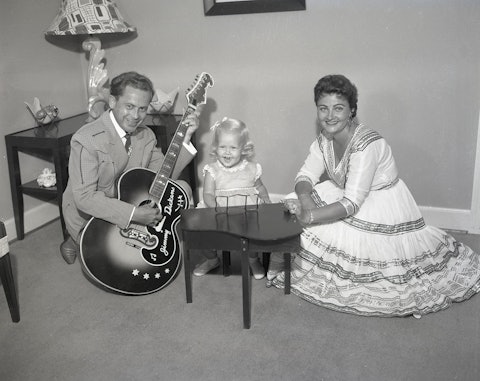
From left: Little Jimmy Dickens with his daughter, Pamela Jean, and his wife, Ernestine, late 1950s. Photo by Elmer Williams.
-
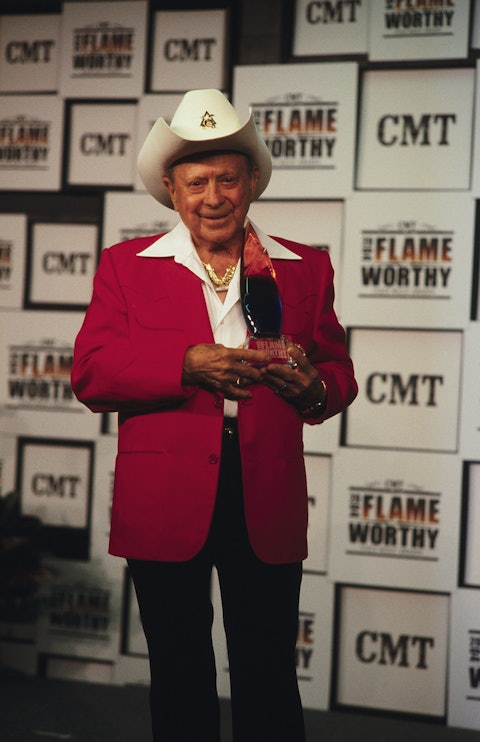
Little Jimmy Dickens at the CMT Flameworthy Video Music Awards, 2004. Photo by Raeanne Rubenstein.
-
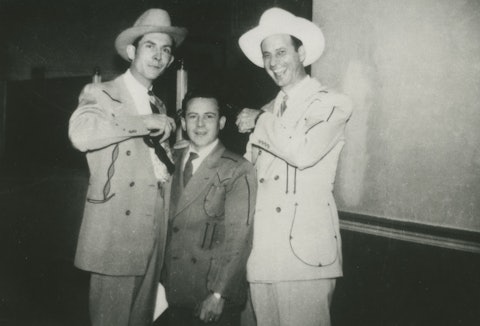
From left: Hank Williams, Little Jimmy Dickens, and Cowboy Copas, 1949.
A New Generation of Famous Friends
In the new century, Dickens was among the Grand Ole Opry’s best known and best loved performers. He served as an ambassador for the show, hosting segments, holding court in his dressing room, and sometimes inducting new members into the Opry family. (To induct the six-foot, six-inch Trace Adkins face-to-face in 2003, Dickens climbed a stepladder.) He also became a friend of contemporary country star Brad Paisley, often appearing in Paisley’s videos and in comedic cameos during the Paisley-hosted Country Music Association Awards, and recording comedy tracks on Paisley’s albums as a member of the “Kung Pao Buckaroos,” with George Jones, Bill Anderson, and others.
“Jimmy Dickens is, without a doubt,” wrote Grand Ole Opry announcer and WSM on-air personality Eddie Stubbs in the Country Boy boxed set liner notes, “one of the greatest entertainers, showmen, masters of ceremonies, goodwill ambassadors, troupers, singers of novelty tunes, and interpreters of country ballads that the country music industry has ever known.”
— Ivan M. Tribe and Peter Cooper
Adapted from the Country Music Hall of Fame® and Museum’s Encyclopedia of Country Music, published by Oxford University Press



